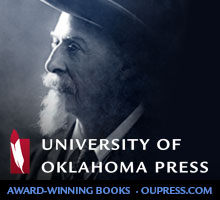Daniel Simon
- [After 1989], I felt as though I had crawled out from under the debris of a mass collision of historical proportions, slightly scraped, yet a new man. – Durs Grünbein, “The Vocation…
-
From our vantage point here on the Oklahoma plains, we’re constantly reminded that we live in “Native America” (every time we look at the license plate of a car in front of us), but few probably real…
-
[Borges’s] Argentinians act out Parisian dramas, his Central European Jews are wise in the ways of the Amazon, his Babylonians are fluent in the paradigms of Babel. – Anthony Kerrig…
- April 18, 2014When news broke yesterday about the death of Gabriel García Márquez, the entire staff of World Literature Today paused to reflect on the legacy of a writer who not only redrew t…
-
When I first met Maaza Mengiste in May 2012 at a French Roast café in Manhattan’s West Village, I was in New York to attend the PEN World Voices Festival of International Literature. I had just gotten…
-
While working on the “Classics Rekindled” section that appears in this issue (page 35), I was struck by the following words from Anne Carson: “Every time a poet writes a poem he is asking the…
-
It is as if the world broke off. Why did it break off? Because the myth ended. – Anne Carson, preface to Grief Lessons: Four Plays by Euripides For those who subsc…
- Five years on from the Great Recession, WLT is proud to present an international sampling of working-class literature, guest-edited by Jeanetta Calhoun…
- September 25, 2013Walter Neustadt Jr. (left) and Álvaro Mutis at the Neustadt banquet, University of Oklahoma, October 18, 2002 The editors and staff of World Literature Today were greatly sadden…
- Daniel Simon The themes of “Turning Thirty” have an archetypal feel to them—sickness, death, rebirth, forbidden love, truth, happiness, naming, freedom, madness, fear, solitude. Do y…
- When does a life bend toward freedom? grasp its direction? – Adrienne Rich, “Inscriptions,” 1991–95 In an essay on “The Homoerotics of Travel,” Ruth Vanita proposes mobility as a def…
- In an essay first published in these pages eighty years ago, Albert L. Guérard wonders whether there is an “intimate and inevitable connection between nationality and literature” (April 1933). While…
- May 30, 2013Recent issues of WLT have featured Tahmima Anam (Bangladesh), Marina Carr (Ireland), and Julia Franck (Germany) on the cover. Two weeks ago, in a post on Words Without Borders, Alis…
- All the world’s a stage. – Shakespeare When I went to Boston in March to attend, for the first time, the annual Association of Writers & Writing Programs (AWP) conference, everything abo…
- March 18, 2013Photo by Jonathan Stalling Two weeks ago, at the 2013 conference of the Association of Writers & Writing Programs in Boston, I spoke on the panel “Looking Out: American Journals on the World Stag…
- “It’s been said of Picasso that he studies an object like a surgeon dissects a corpse. We want no more of these embarrassing corpses, these objects. Light i…
-
In Beauty Bright, Gerald Stern, W. W. Norton, 2012 In “Four Crises,” an essay in his 2012 collection Stealing History, Gerald Stern writes: “Humans, because of their minds, because o…
- Think of consciousness as a territory just opening to settlement and exploitation, something like an Oklahoma land rush. Put it in color, set it to music, frame it in images. . . . – Saul Be…
- In the spirit of the dead, the living, and the unborn, empty your ears of all impurities, o listener, that you may hear my story. - Ngũgĩ wa Thiong'o, Wizard of the Crow (2006) Article 6 of…
- The forgetting happens only when memory is quashed by routine, when the bike is just a quotidian vehicle for getting from one place to the next. – Eric Freeze, “Hemingway on a Bike,” Harv…
- If poets as far-flung as France, Cuba, India, and Nicaragua comprised the avant-garde of literary modernism, a lookout in a turret in Chicago, Illinois, saw the invasion coming to America and, instea…
- July 16, 2012Since the early 2000s, World Literature Today has been gingerly dipping a toe into the fast-flowing waters of the World Wide Web. In the early years, we started out by hosting a basic webs…
- The unbearable darkness of being.” That’s what the plays of Marina Carr, the 2012 Puterbaugh Fellow (page 42), are about, according to Melissa Sihra, professor of drama at Trinity College Du…
- No one in these days needs to be convinced that thoughts are powerful weapons, and we of Books Abroad like to believe that our publication is, in its way, an instrument of peace as well…
- In the end, it's about stories, and if I've learned one thing in fifteen years of being a foreign correspondent, only stories matter. – Anthony Shadid, "The Truths We Tell: Reporting on Faith, War…
 ;
;









